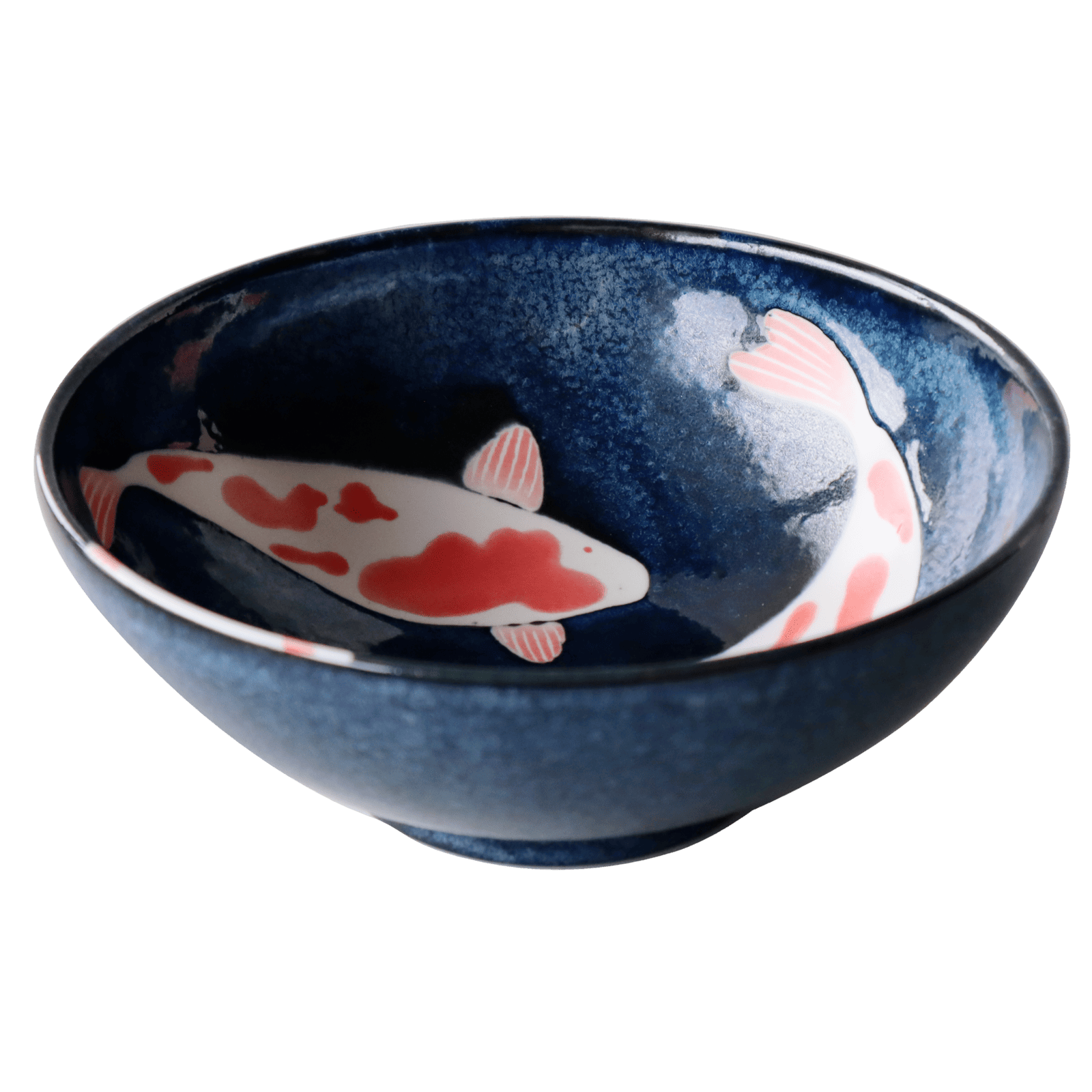
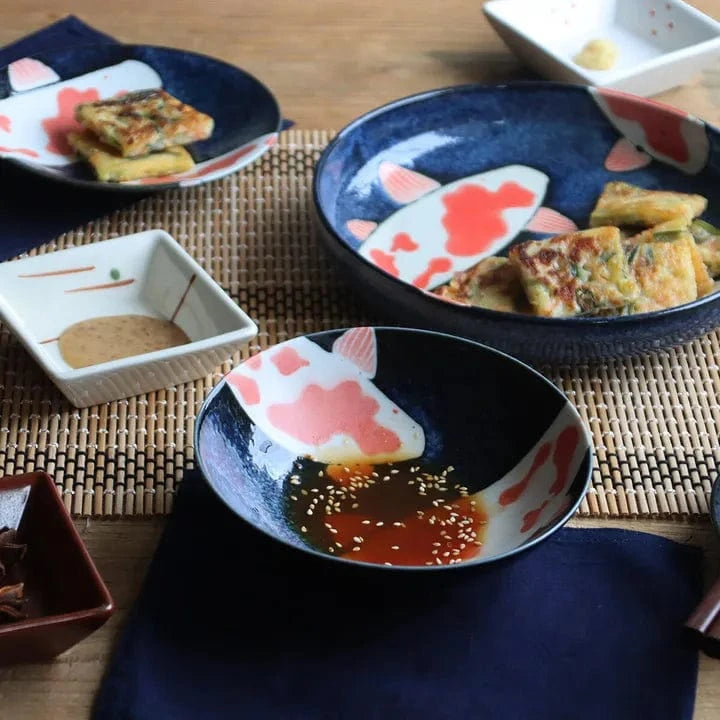
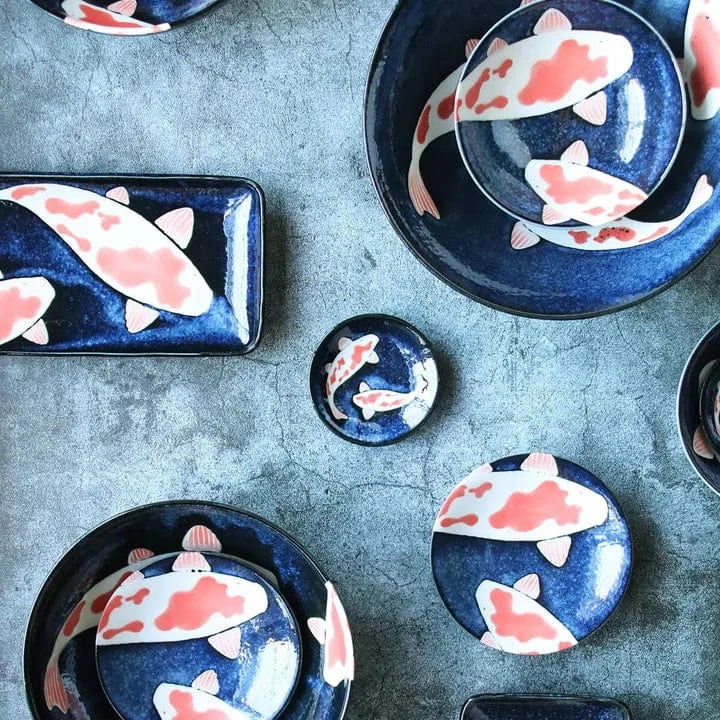
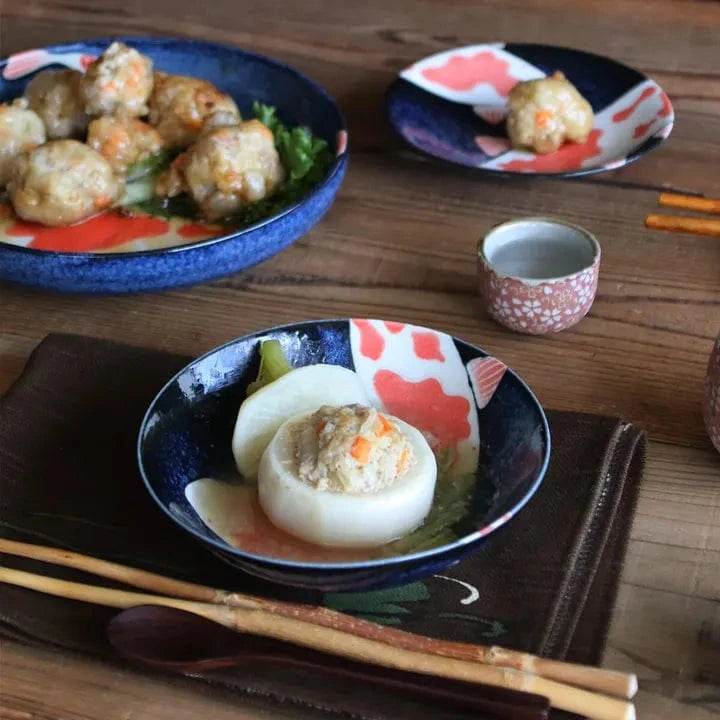
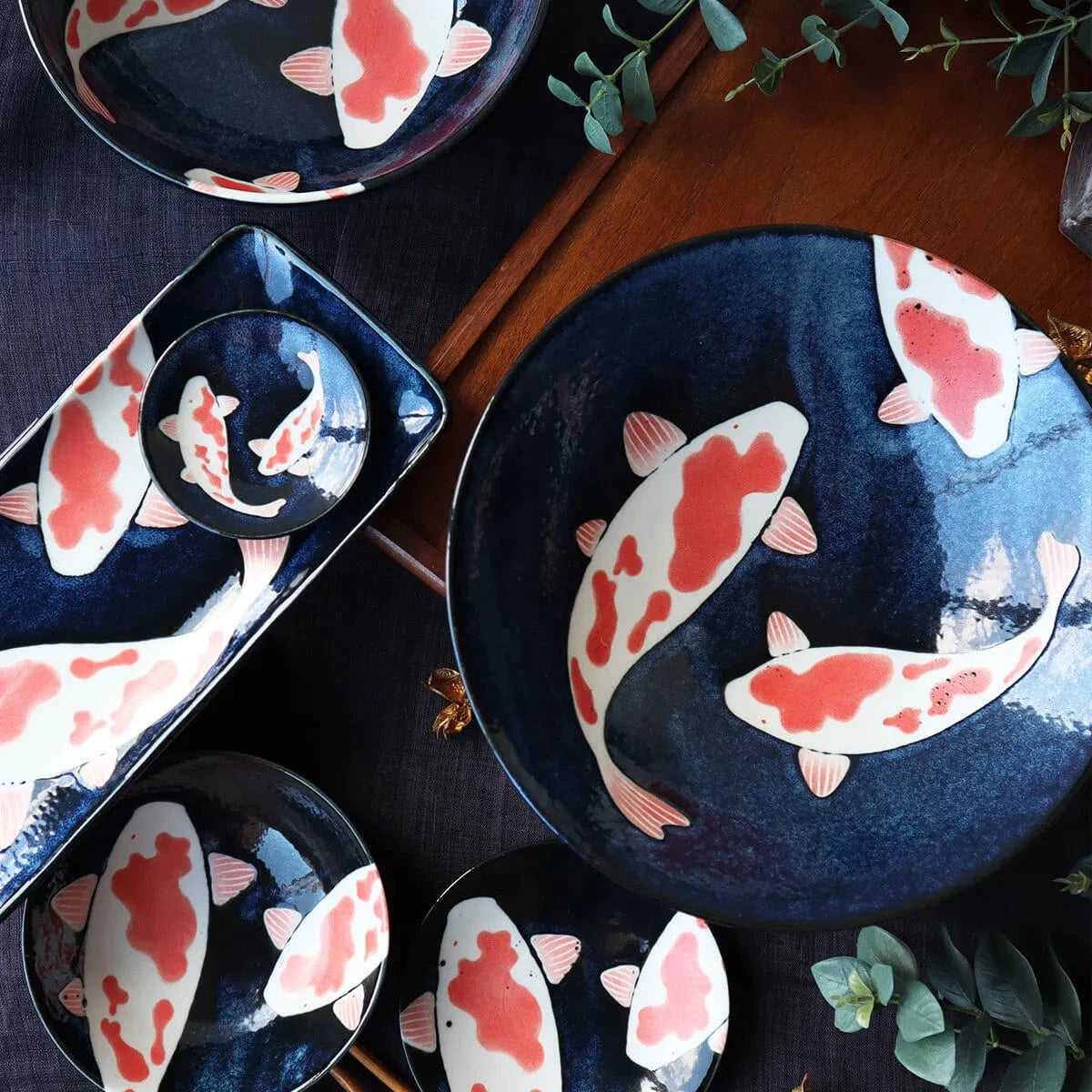
Nishiki Goi Noodle Bowls Set (3 pieces)
Fast & Secure Delivery from Japan to your Door [Shipping Policy]
Shop Safely with Encrypted Checkout and Verified Gateways.
Pairs well with

Nishiki Goi Noodle Bowls Set (3 pieces)
Grace in Motion – Nishiki Goi Noodle Bowl
Transform your meals into meaningful moments with this exquisite set of 3 Nishiki Goi Noodle Bowls, where tradition meets timeless design. Each bowl in this elegant trio showcases the legendary Nishiki Goi—red-and-white koi carp that symbolize perseverance, harmony, and good fortune in Japanese culture. Swimming gracefully across a glossy, deep indigo interior, the koi’s vibrant forms create a striking contrast that turns even a simple dish into a visual feast.
Handcrafted from premium porcelain and finished with a silky water-repellent glaze, these bowls offer both refinement and resilience. The wide mouth and deep structure provide ample space for generous servings—perfect for ramen, udon, soba, donburi, pasta, and more. Whether you’re serving a comforting solo dinner or hosting guests with Japanese flair, these bowls strike the perfect balance between artistic expression and practical function.
Their weight feels satisfying in hand, their colors evoke depth and tradition, and their design honors one of Japan’s most iconic symbols. Display them together as a centerpiece, or enjoy their versatility in your daily tableware rotation. For a complete table experience, pair them with other pieces from our Nishiki Goi Collection.
Product Information
Care instructions
Maker
Note
FAQs
All you need to know about Japanese Pottery.
What types of traditional pottery are made in Japan?
Japan is home to several renowned pottery styles, including Mino ware (Gifu), Bizen ware (Okayama), Arita and Imari ware (Saga), Shigaraki ware (Shiga), and Mashiko ware (Tochigi). Each region has its own distinct materials, glazes, and firing techniques that reflect local history and aesthetics. Toki City in Gifu Prefecture is particularly renowned as the heart of Mino ware (Minoyaki)—the most widely produced pottery style in Japan.
What materials are used in artisan Japanese pottery?
Most artisan pottery in Japan is made from locally sourced clay, often mixed and refined by hand. Natural minerals and ash are used in glazes, and many pieces are wood-fired or fired in traditional climbing kilns (noborigama), producing unique surface textures and natural variations.
Are artisan Japanese pottery pieces safe for food use?
Yes. Authentic artisan pottery is made with food-safe, lead-free glazes and is carefully fired at high temperatures to ensure durability and safety. However, it's important to follow care instructions, especially for unglazed or porous ceramics.
What makes Japanese pottery different from Western ceramics?
Japanese pottery often emphasizes wabi-sabi—the beauty of imperfection—resulting in organic shapes, subtle asymmetry, and natural glazes. Unlike Western ceramics, which may prioritize uniformity, Japanese pieces often celebrate the individuality of each item, reflecting the artist's hand and the firing process.
How should I care for artisan-made Japanese pottery?
Hand-wash pottery with mild soap and avoid extreme temperature changes (like placing hot items into cold water). Some unglazed pieces may absorb moisture, so allow them to fully dry before storing. Avoid microwaves or dishwashers unless the piece is specifically labeled as safe for such use.

